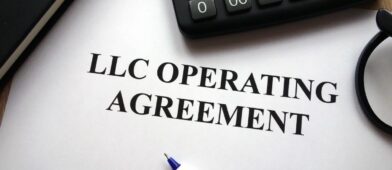Homeownership is great… except you end up shelling out quite a bit to get things done to and around your home.
We live on a wooded lot with lots of tall trees. Just recently a maple fell and it measured a little over 4′ in diameter with the main trunk that was easily 10′ tall. It was massive.
Many of the tall trees are poplars that are at least 80′ tall and when you have trees of that size, densely packed in, you often need professionals to help you take them down. For those, it's important to get someone who is licensed, bonded, and insured.
When you start researching different companies, there are minimum requirements they must meet before you should even consider reading any reviews on the quality of their work. That's where the terms “licensed, bonded, and insured” come into play.
Almost always said together, these each mean different things but they are all critically important.
Quick explanation of the three
I'll go into greater detail, including how you can confirm a company is actually licensed, bonded, and insured; but here's the quick rundown for each and why it's important.
- Licensed: A state may require some professions to have a license before you can do business in the state. This means that the business or person has passed the minimum requirements to obtain a license from the state.
- Bonded: A state may also require that company to have a surety bond. This bond protects you in the event you have a claim against the company. If the claim is valid and the business is unable to pay, it would come from this bond.
- Insured: Insurance protects the company in the event something happens to an employee on the job, such as an accident. Without this insurance, you could potentially be liable through your homeowner's insurance.
These are all important and you should never hire someone who is not licensed (if necessary), bonded (if necessary), and insured. If a license is required, that person cannot legally perform the functions and that may lead to issues down the road (like when you sell the home).
For example, you get some electrical work done by a non-licensed electrician. This may be discovered on a home inspection when you sell your home and sink the sale or cause some other headache. You could pay the unlicensed person less now but it could end up costing you more down the road. Plus, they could do something dangerous in the meanwhile.
What does it mean to be Licensed?
 For some professions, you need to get a license before you can perform that function.
For some professions, you need to get a license before you can perform that function.
For example, Cosmetology is the study of beauty treatments – skin, hair, cosmetics, manicure/pedicures, waxing, laser treatments, etc. If you've ever gotten a haircut, chances are you've seen the license prominently framed on the shelf.
That's because every state requires a license in part because there are often dangerous chemicals involved in cosmetology. My simple haircut requires just a trimmer, comb, and a pair of scissors but there are a lot of chemicals involved in other treatments (tons of chemicals when you talk about hair smoothing, nails, perms).
With most licenses, you are required to complete a certain number of training hours, pass a test, and maintain that training. In many cases, you have to remain affiliated with a licensed company (so for a hairdresser, a licensed salon/barbershop) too.
When we recently had some 80′ poplars cut down, we found a licensed tree professional and they had their license number printed on the side of the truck. It's also printed on any materials (including coupons), so you can look them up on their Maryland website. Always look up the license!
Remember, this is not an indication of expertise (we've all had bad haircuts!). This is just a signal that they've done the minimum necessary to work in that profession in the state you're in.
What does it mean to be Bonded?
Bonded means that there's a bonding company that has money set aside for claims against the company or individual. This is typically required by the government as part of the licensing process.
The company will buy a bond, the money that's set aside, from a surety bond company because the state requires it. The company buying the bond is known as the principal, the surety is the bond company that backs the bond with a line of credit, and the obligee is the government (or entity that requires it).
The bond is meant to protect the consumer from the actions of the principal. It's different from insurance which protects the company.
For example, if you hired a cleaning company to come into your house and a worker damages something in the house, you would file a claim against the company. If the company fails to pay a valid claim, the bond would step in. From there, the surety would collect from the company – this protects the consumer by having this money set aside and not in full control of the company.
What does it mean to be Insured?
This is the easiest one to understand – it means they have insurance! This protects the company from things that might happen on the job – like if someone gets hurt. If a worker gets hurt on the job and they have insurance, the worker files a claim against that insurance. If the worker is just some random guy you hired to do odd jobs and he gets hurt, then you'll have to file a claim against your homeowner's insurance!
There's no central database of insurance policies, like there is for the license, so the provider will typically offer to give you a copy of their certificate of insurance. You should call the insurance company and confirm the policy matches what the certificate says.
Always confirm this!
If the policy isn't in effect:
- Tell them! Insurance policies lapse, people are forgetful or office managers lose the renewal documents in the shuffle, so who knows. Maybe they need to update their certificate. Or maybe they don't have insurance. Either way, let them know.
- Don't hire them until it's sorted out. 99% of the time, they will do the work and everything will be peachy. Insurance is there for that rare unexpected case, like if they fall a tree and hurt themselves. You want their insurance to cover it, not yours.
How do you know if a license, bond, or insurance is required?
Each of these are state specific. If you leave near the border, make sure the company you hire has the right licenses, bonds, and insurances for your state. Here in the DMV (D.C., Maryland, Virginia), it's not uncommon for service providers to be from another state. They will usually have a laundry list of numbers on their trucks for each state.
If you do your due diligence and ask for more than one quote, one of the providers will mention that they are licensed, bonded, and insured if it's required. It's extremely unlikely you'll find three separate un-licensed individuals when a license is necessary. The same goes for bonds.
Insurance is something all businesses should be carrying.
Ok – now you know what it means to be licensed, bonded, and insured!




This is also a great reminder of why you should hire out certain parts of a DIY project. Unless it’s your line of work you wont be licensed, bonded or insured. If anything goes wrong it’s all on you. Hire out electrical, plumbing and gas work.
The insured portion of this topic applies in multiple ways, more than just workers compensation to cover their employees injuries while on the job. Business insurance policies also can cover errors and omissions committed by the company while performing their work, business interruption insurance, which covers the loss of income resulting from a catastrophe that disrupts the operation of the business, and liability protection to cover the company’s legal responsibility for the harm it may cause to others. There are many other coverage types that can be added on, but these are the most common which can impact a customer… Read more »
After reading your article, I did some research and it turns out all the three info. can be found in one place on my state government web site (http://lni.wa.gov/). It has a database for search to verify a contractor’s or tradesperson’s license, and the bond and insurance information are also listed under the contractor’s info. I will do a search next time when I need to hire a contractor. Thank you Jim.
A bond does not cover against damage by a worker, any damage or injury is covered by insurance. A bond can protect against many things, but for most residential uses, it’s a “dishonesty” or “business services” bond. This typically covers against dishonest acts by employees, like theft. If a claim is made and proven in court, the surety/insurance company will pay the bond claim. There are many other types of bonds as well in addition to these types.
In California a contractor licensed by the California State Contractors Licensing Board, CSLB, may NOT advertise they are BONDED unless the carry an ADDITIONAL bond beside the surety bond required for the license to be active. Doing so is a VIOLATION of the state contractors license law and contractors can be fined. It gives a false impression that there is more protection than there is.